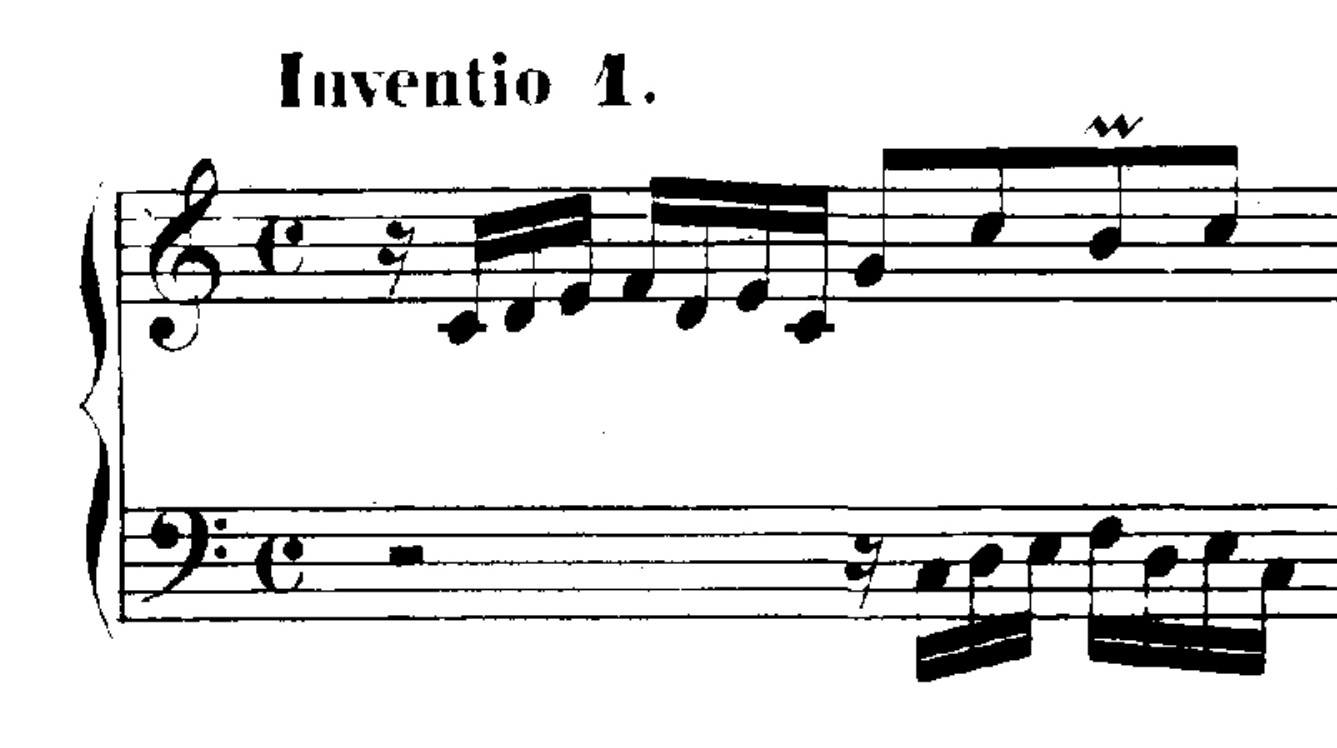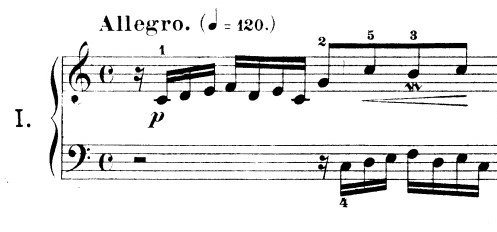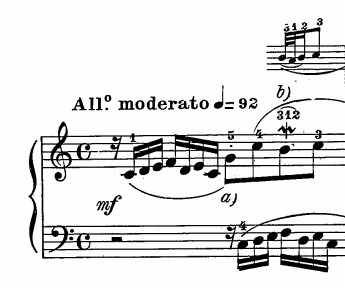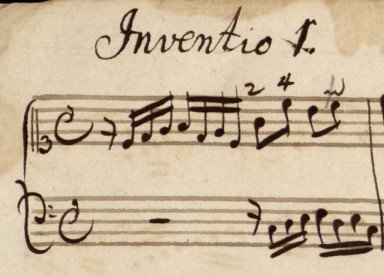Best Piano Sheet Music Editions
How to choose best classical piano sheet music editions?
The sheer number of available sheet music editions of classical piano repertoire can be overwhelming. Selecting an inappropriate one can result in:
- learning incorrect notes or rhythms,
- executing dynamics opposite to the one intended by the composer,
- selecting uncomfortable and inefficient fingering.
Below is a comparison between four editions of Bach’s Invention No. 1, Bar 1:




Differences are dramatic!
- Would you start in dynamics ‘piano’ (Example 2) or ‘mezzoforte’ (Example 3)?
- Do you prefer Allegro (120BPM) or Allegro Moderato (92BPM)?
- Would you feel comfortable using the manuscript, considering the right hand is written in old-fashioned, not the standard treble clef?
- If you go with the urtext (Example 1), will you be able to figure out the dynamics and articulation just by the score analysis alone?
Urtext vs performance edition
When searching for classical piano sheet music editions, you will face two main options to choose from. Each comes with its own set of advantages and disadvantages:
Goals
Urtext editions
Focus on presenting the musical text as accurately as possible, according to the composer’s manuscript (handwriting).
Performance editions
Present the musical text with the addition of various performance suggestions, additional dynamic markings, and fingerings, sometimes disregarding the composer’s intentions.
Who are the authors?
Urtext editions
Focus on presenting the musical text as accurately as possible, according to the composer’s manuscript (handwriting).
Performance editions
Present the musical text with the addition of various performance suggestions, additional dynamic markings, and fingerings, sometimes disregarding the composer’s intentions.
How are edits marked in the score?
Urtext editions
Focus on presenting the musical text as accurately as possible, according to the composer’s manuscript (handwriting).
Performance editions
Present the musical text with the addition of various performance suggestions, additional dynamic markings, and fingerings, sometimes disregarding the composer’s intentions.
Are all urtext editions good and performance editions bad?
Not all urtext editions are good.
Some have been created many years ago when certain documentation and the availability of the original handwriting of the composer were not possible. The strictness of research has also improved over the years, so newer editions should probably be preferred. Even such well-established publishing houses such as Henle Verlag re-publish their editions due to new findings and better understanding acquired through research.
Not all performance editions are bad.
Many newer performance editions are based on scholarly research and are created not as evidence of the editor’s point of view, but to save the performer from years of reading and studying, delivering top-quality scores without all the effort.
Many historical editions (such as those created by Carl Czerny or the great Franz Liszt) prove how great pianists and pedagogues interpreted the music of their time. We might disagree with them now, but who would not want to know the fingering developed by the Liszt himself?
Which edition is right for you?
This greatly depends on whether you have sufficient time to do your own research regarding the interpretation of the repertoire you would like to play or teach, and how much experience you have accumulated already in interpreting the particular style of music.
An easy way
If using a clean urtext edition seems daunting, you should probably use a well-edited performance edition instead, where interpretative and fingering suggestions were created by a professional pianist and academic scholar. In this way, you will be able to follow interpretation suggestions created based on recent stylistic research and use fingerings designed by someone who can professionally perform this music.
Medium difficulty
Get a reliable urtext edition and use it as your main score. Purchase or download one or more freely available performance editions and listen to various recordings and, through comparison, make decisions regarding which interpretative approach suits you best.
Hard difficulty
Follow the same route as described in Medium difficulty above, but support it by researching academic resources into the particular style. You can then make informed decisions based on well-established publications, and edition commentary included with good editions, which are used by professional interpreters of this music who then perform it on an international stage.
Are free IMSLP.org editions any good?
Yes, IMSLP is an excellent source of editions, including historical and modern performance editions and urtexts (often more than one publisher). The key is to know how to find them, as the number of editions per piece can be quite overwhelming, and urtext editions are often unlabeled. From nineteen (!) editions of Bach’s Two-part Inventions available on IMSLP.org, only the one below is an urtext:

It is worth noting that some of the excellent urtext editions and available without fingerings. If you purchase the original printed score, it will also include the fingerings. My guess is that the fingering might be under copyrights or that by removing them, copyright laws do not apply.
My review of best editions
I hope you now better understand the issues related to selecting the best score. Since no single best edition can be suggested for all piano compositions, I will be publishing additional articles where I review and discuss the best sheet music editions for many composers. The first two in line are Bach and Chopin. Please sign up for my newsletter to get notifications when new articles become available.
Thank you for reading!
ps. Please let me know in the comments section which composers you would like me to include next in my score reviews.
I encourage everyone to obey all copyright laws in their respective locations. Purchasing original printed editions goes a long way in supporting difficult and time-consuming research needed to provide us with high-quality, reliable classical piano sheet music editions.
Affiliate links in this article
I have included affiliate links to support my writing and time spent creating videos and articles. I will receive a small commission if you decide to buy some of the linked products. This will be at no additional cost to you. I am not paid by any of the publishers, and my advice above is based on my personal and professional experience with your best outcome in mind.
Interpreting Bach at the Keyboard – Paul Badura-Skoda
Interpreting Bach’s Well-Tempered Clavier – A Performer’s Discourse of Method – Ralph Kirkpatrick
